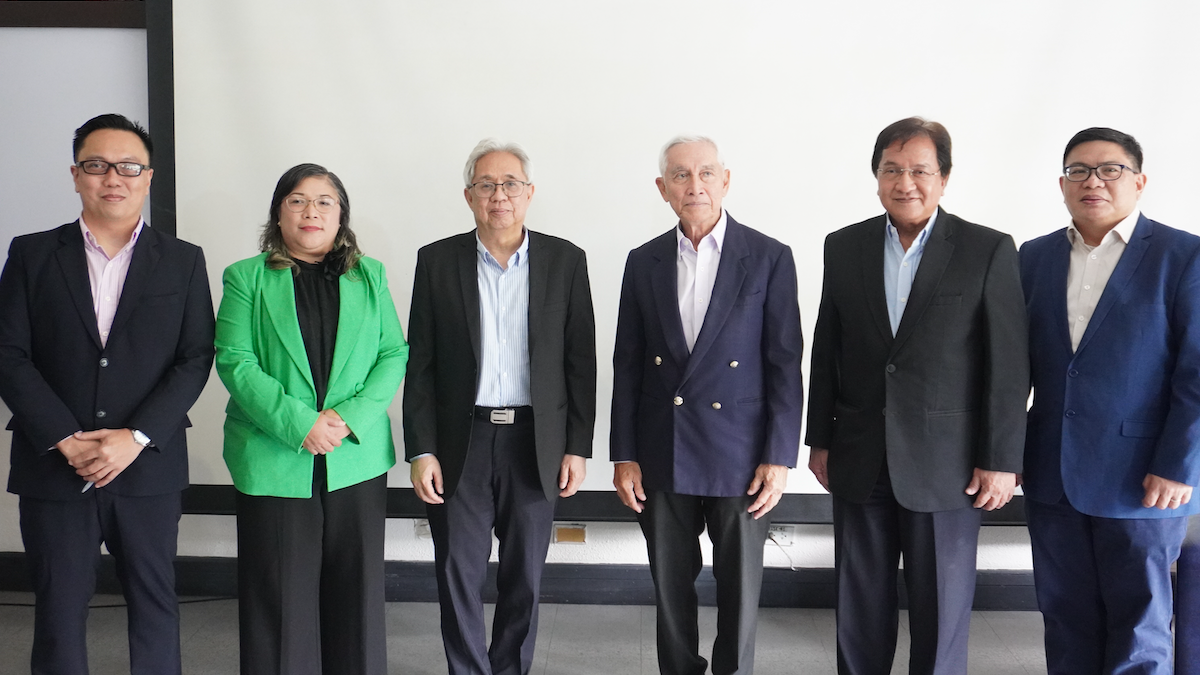
In its latest economic forum, titled Building the Economic Momentum: Outlook and Imperatives, the Ateneo Eagle Watch Economic Briefing took a look at the Philippines' current economic momentum and what its leaders needed to do to build on it.
The briefing, which took place on the morning of 21 March 2024, was organized by the Ateneo Center for Continuing Education (CCE) in partnership with the Ateneo Center for Economic Research and Development (ACERD). Its keynote speaker was former Finance Secretary Margarito "Gary" Bustaliño Teves.
Mr Teves was appointed as Secretary of the Department of Finance in 2005 by then President Gloria Macapagal Arroyo, following a mass resignation of her economic team. During his term, which lasted until 2010, Mr Teves was named "Best Finance Minister" in Asia by the London-based international finance magazine, The Banker. In addition, Mr Teves also served as in the House of Representatives, representing Negros Oriental's 3rd district.
Joining Mr Teves in the briefing were two of ACERD's senior fellows, Dr Cielito F Habito, former Secretary at the National Economics and Development Authority, and faculty at Ateneo's Department of Economics; and Dr Alvin P Ang, Chair of Ateneo's Department of Economics.
The speakers were welcomed by Dr Fernando T Aldaba, Senior Fellow at ACERD and a member of the Ateneo de Manila University Board of Trustees.
Dr Fernando T Aldaba delivering the opening remarks
Dr Habito presented first, with a presentation titled "Building Momentum on a Strong Backbone." Using his trademark “PiTiK test” –presyo (prices), trabaho (jobs) and kita (income) – Dr Habito explained that there was some good news for the country's economy. However, this still paled in comparison to its ASEAN peers.
Dr Habito explaining that how child stunting puts the nation's future at risk through low workforce productivity
He pointed out the need to address the increased incidence of child stunting at 5 years old and below, which is higher compared to the Philippine's neighbors in ASEAN; strengthen the agriculture sector through meaningful reform; and attract further direct foreign investments, especially in manufacturing and agribusiness.
Dr Ang followed up Dr Habito's presentation with his own, focusing on the fiscal and monetary outlook of the country. The presentation included data from both the World Bank and the International Monetary Fund on the country.
The key messages in Dr Ang's presentation were that controlling inflation needs assurance, particularly of food products; that interest rates cannot be at current levels and that a rate cut can be expected sometime in the 3rd quarter; that exchange rates should see deficit softening as there is less pressure to depreciate and import inflation, while remittances and BPOs continue to help bridge the gap; and that higher interest payments due to high rates in and outside the country will see a need to improve revenue and asset liquidation to boost the slack of the private sector.
Overall, Dr Ang stated that the Philippines remains the 2nd fastest economy in the region and will be the fastest in 2024 should the issues be addressed.
In his keynote address, titled Imperatives for Cath-up Development, Secretary Teves explained that the Philippines hasn't been an attractive destination for foreign investment as its gross domestic product (GDP) per capita remains low compared to its neighbors. In 1965, the country's GDP per capita was higher than South Korea, at US$211 vs US$108; but it now lags far behind, at only US$3,460 compared to the latter's US$30,000.
Secretary Teves delivers his keynote on what the country's economy needs to catch up with its neighbors
Even within ASEAN, countries like Thailand, Indonesia, and most recently Vietnam, have also since overtaken the Philippines in GDP per capita.
Secretary Teves also laid out what he saw as challenges to inclusive growth and a larger GDP per capita. These included inflation being too high, investment in human capital being lacking, economic activity remaining too concentrated on the national capital region, business costs being too high and mired in bureaucracy, industrialization not being export-led, a lack of "inclusive" institutions due to historically inward-looking economic policies, a legal and constitutional framework not at par with its ASEAN peers, and extensive graft and corruption.
To address these issues, Secretary Teves made a number of suggestions. These were fighting inflation from the supply side, investing more in education, financing and decentralizing development, engaging in more Private Public Partnerships (PPP), improving the Corporate Recovery and Tax Incentives for Enterprises Act (CREATE) law, fast-tracking the digitalization of government services, refocusing industry to be more export-led, creating more inclusive institutions, removing restrictive economic provisions in the Constitution, strengthening anti-corruption measures, and concerning the Legislative-Executive Development Advisory Council (LEDAC) regularly.
Secretary Teves concluded his presentation by stating that the Philippines catching up with its neighbors to achieve upper-middle income status would be difficult if the challenges he listed are not addressed soon. That said, catching up with its neighbors is imperative if the country wants to improve the lives of its people.
The morning concluded with an open forum among the resource persons followed by lunch, during which Dr Habito also took the chance to sign copies of his book, "No Free Lunch: Essays on Philippine Agriculture."
Reference: https://www.ateneo.edu/news/2024/03/25/ateneo-eagle-watch-tackles-challenges-philippines-needs-address-build-economic


